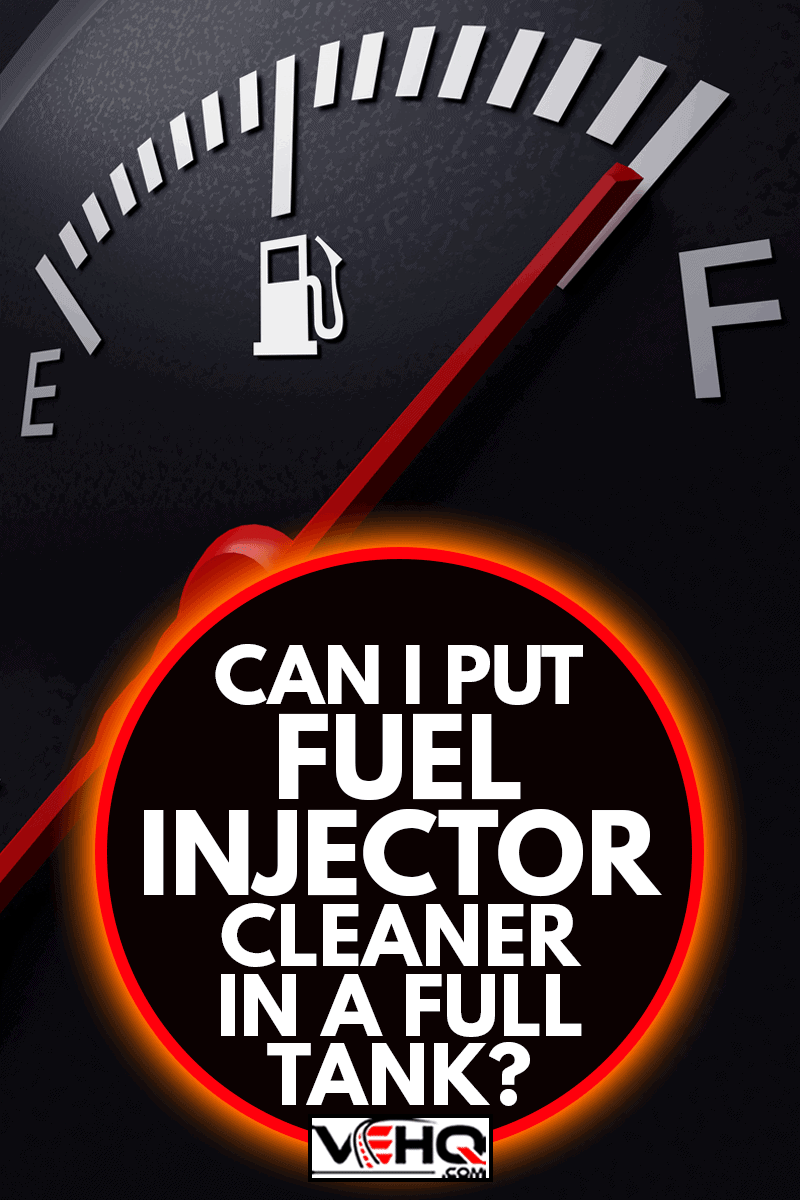Many vehicle owners, especially those with older models, wonder about the right approach to understanding how to use fuel injector cleaner.
Such additives have long been recommended to extend the life of engines.
As our vehicle's parts wear with use and age, the use of specialized products can help to minimize the damage that time has caused, helping to stave off costly repairs or replacements.
For example, additives can help prevent the buildup of harmful hydrocarbons and other deposits in your fuel line, namely in the injectors.
But the question remains: Should you add a fuel injector cleaner to a full tank?
In this guide, we give you professional insights to provide clarity on using this additive optimally.
Quick Answer:
Fuel injector cleaners should be added to your vehicle's gas tank when the tank is nearly empty.
While you won't harm the engine or fuel line if you add the cleaner to a full tank, the effectiveness of the additive might not be at its maximum.
Now that we know you should add a fuel injector cleaner to an empty tank, we'll look deeper into this popular additive.
You might also be curious if it's possible to use too much of this product or the tell-tale signs of your injectors being clogged.
For the answers to these questions and more, read ahead in this post to see what we've discovered.
Table of Contents
- Why Use Fuel Injector Cleaners?: The Role and Importance of Cleaners
- Guided Steps to Using Cleaners: When and How to Apply
- Selecting the Best Brands: Trusted Names and Compatibility
- Recognizing Clogged Injectors: Key Signs and What They Mean
- Optimal Usage and Benefits: Frequency and Noticeable Improvements
- Mechanic Recommendations: Expert Tips and Insights
- Ensuring Vehicle Longevity and Efficiency
How To Use Fuel Injector Cleaners Properly
If only it were as simple as just buying the cleaner and dumping it into your gas tank.
While using this additive isn't complicated, it's still important to know how it works, when you should use it, and how it's best used.
So here, we'll break this down for you.
The Importance Of Using Fuel Injector Cleaners
Over time, your fuel line will accumulate debris, like hydrocarbons.
This buildup will cause your fuel injector to block fuel from entering your engine. Or it could stick the injectors open and allow too much fuel to enter them.
Fuel injector cleaners can prevent this buildup if used promptly and properly.
Now, here's the step-by-step guide to help you effectively use a fuel injector cleaner for optimal results:
Step-by-Step Guide to Using Fuel Injector Cleaners Effectively
1. Preparation
Always have your fuel injector cleaner ready, ideally before your tank runs empty.
2. Product Knowledge
Research the various brands of fuel injector cleaners. Select a recommended brand that suits your vehicle model.
Stick to your chosen brand for consistent results. Read the instructions on the bottle thoroughly before using it.
3. Tracking Usage
Check the recommended frequency of use for your chosen cleaner brand. Reset your trip odometer every time you add the cleaner. Use the odometer to track the miles since your last use as a reminder for the next application.
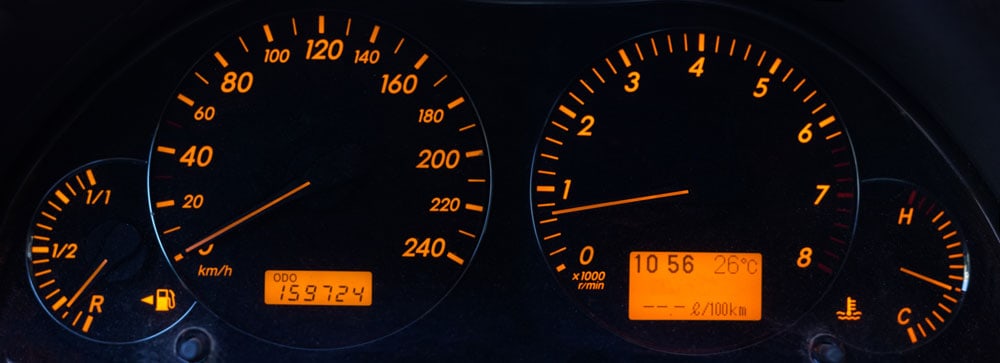
Can You Add Fuel Injector Cleaner to a Half-Full Tank?
As we discussed earlier in this post, it's usually recommended that fuel injector cleaner be added when your tank is almost empty.
While this doesn't mean you can't add it to a half tank, it indicates it won't work as effectively.
Of course, you'll want to read the instructions on the fuel injector cleaner bottle before adding it to your gas tank.
As each brand works differently, it's essential to be completely aware of every step you should take when pouring it into your vehicle.
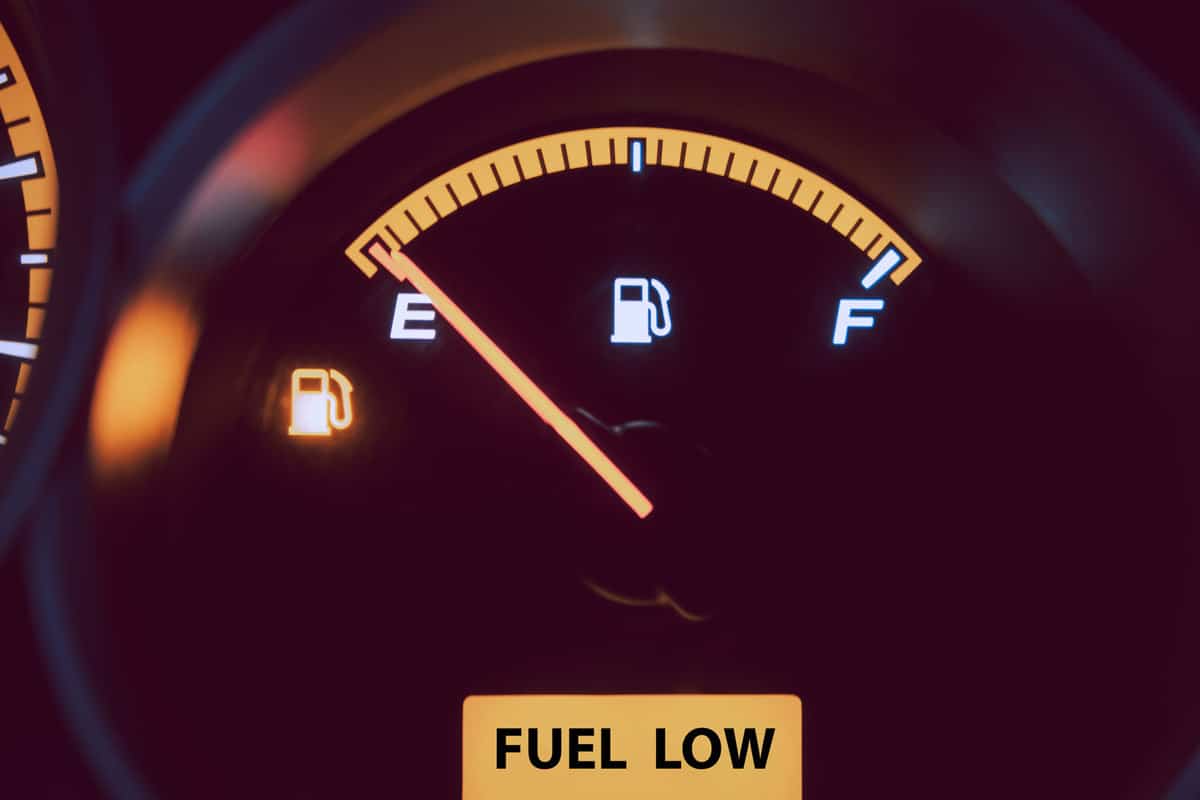
Top Fuel Injector Cleaner Brands to Trust
Quality matters. Here are some of the most reputed brands that have garnered trust from experts and regular drivers alike:
These brands have received positive reviews from both automotive professionals and everyday drivers.
Each brand offers formulas for specific needs, such as high-mileage vehicles or diesel engines.
Reading customer reviews and comparing the effectiveness of each brand can help you make an informed decision.
Additionally, it's crucial to choose a product compatible with your vehicle's make and model, as the manufacturer recommends.
Optimal Usage And Benefits Of Using Fuel Injector Cleaner
Fuel injector cleaners are additives specifically designed to keep the injectors running smoothly. But how exactly should you use them for maximum benefits? Let's dive into the application process.
Applying Fuel Injector Cleaner: Before or After Refueling?
When you add a fuel injector cleaner to your gas tank, it's recommended to add it just before you add the fuel.
This will allow the additive to be immediately mixed and sucked into the fuel injectors upon starting your engine.
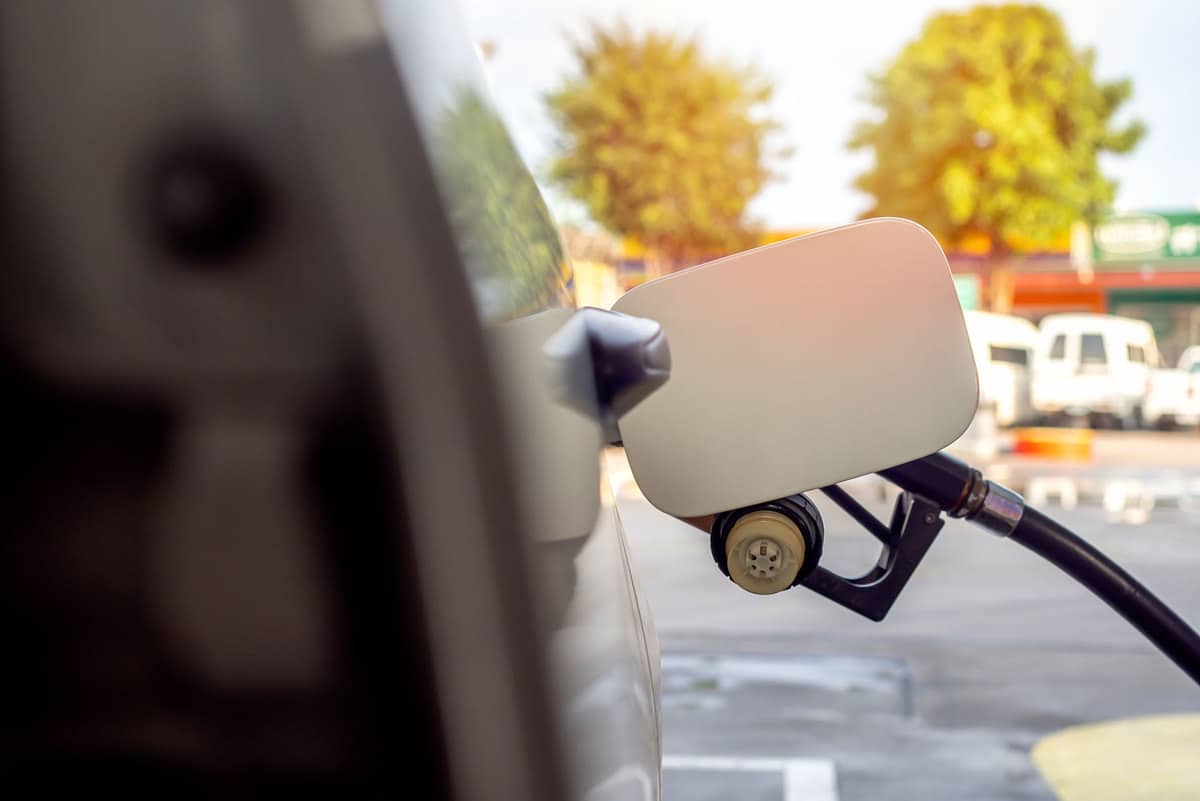
Risks of Overusing Fuel Injector Cleaner
As is the case with any additive, it is certainly possible to use too much of it. How much should be added precisely will depend on the brand of additive that you use.
Before use, read all instructions on the additive bottle. This will prevent damage to your vehicle's components.
Fuel injection system cleaners are highly concentrated with cleaning agents.
If you add too much of this cleaner to your fuel tank, the chemicals will work to damage any rubber gaskets or seals in your engine.
As this is the case, you'll want to avoid using too much at once or too often.
This post will also address how frequently you should use fuel injector cleaner.
Identifying Clogged Fuel Injectors: Signs and Solutions

You might notice the overall performance of your vehicle is lagging, which could indicate a clogged fuel injection system.
When the system is clogged with debris, it will allow too much or too little fuel to reach the engine.
Should this happen, your engine could have great difficulty starting or not turning over.
Another sign of a clogged fuel injection system is irregular idling.
The inconsistent fuel release into the engine can cause the idle RPMs to fluctuate significantly, as you will see on your dash's instrument panel.
You could also notice that the overall fuel economy of your vehicle has substantially been reduced.
If any of the above scenarios occur, having your vehicle examined by a trusted local mechanic is a great idea.
This person can adequately clean your fuel injection system and quickly put you back on the road.
Fuel Injector Cleaner Frequency: Every Refuel or Periodically?
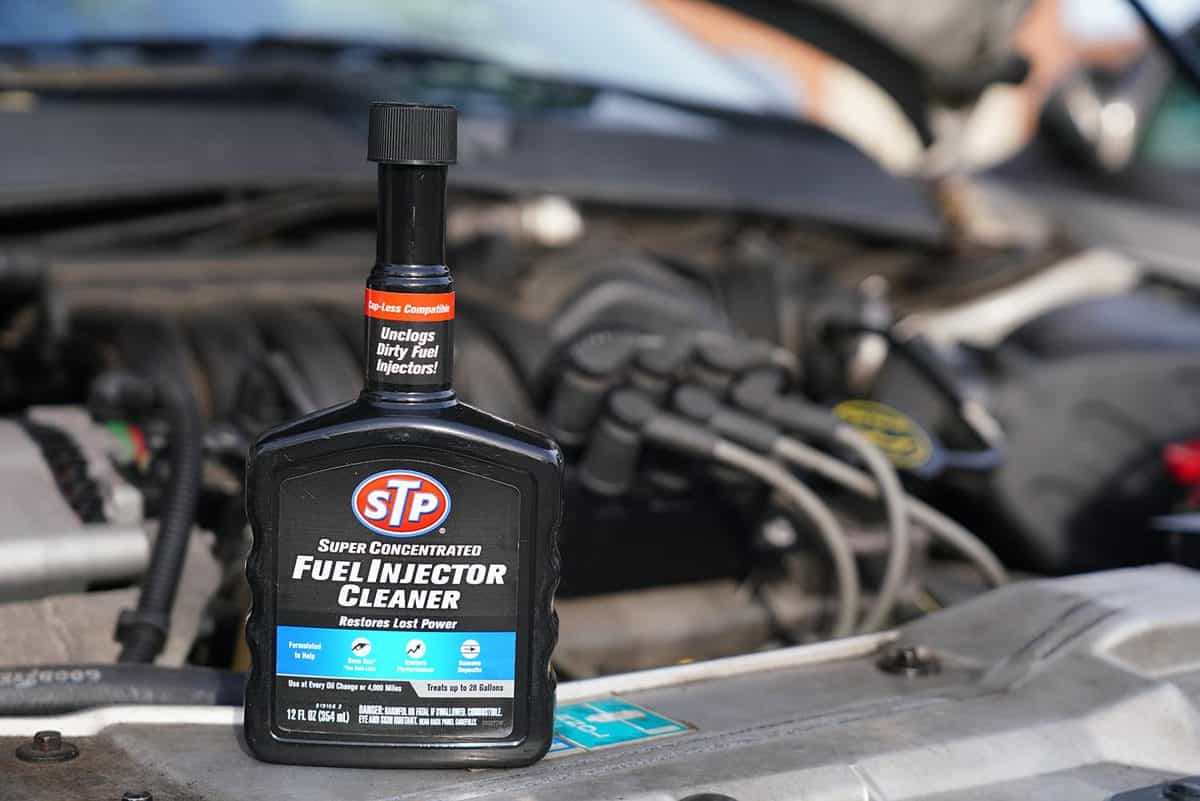
If you compare different fuel injector cleaner brands, you'll probably notice some differences in the instructions.
For gasoline-powered engines, the duration between the use of the cleaner can significantly fluctuate, so it's essential always to read before you add anything to your fuel tank.
Generally speaking, adding a fuel injector cleaner is recommended every 2,500 to 3,000 miles.
But if you are operating a vehicle with a diesel engine, experts maintain that you should add this cleaner just before a fill-up every 5,000 miles.
Mileage Boost: The Perks of a Clean Fuel Injection System
A clean fuel injection system can lead to improved fuel efficiency and mileage.
When the injectors are free of debris and buildup, they can deliver the correct fuel to the engine, optimizing the combustion process.
As a result, your vehicle can run more smoothly and efficiently, leading to better fuel economy.
A quality fuel injector cleaner can help maintain this optimal performance, saving you money at the gas pump.
Over time, this increased efficiency can result in significant savings and prolong the lifespan of your vehicle.
Expert Mechanic Insights on Fuel Injector Cleaners
Before adding any fuel injector cleaner to your vehicle, it's wise to consult with a trusted mechanic.
Professional mechanics can assess your vehicle's specific needs, recommend the best products for your make and model, and advise you on the proper frequency of use.
Many mechanics recommend using a fuel injector cleaner every 2,500 to 3,000 miles for gasoline engines or before every fill-up for diesel engines, depending on the brand and vehicle requirements.
By following these recommendations and using a cleaner compatible with your vehicle, you can ensure the effectiveness of the additive and maintain the health of your fuel injection system.
Ensuring Longevity And Efficiency In Your Vehicle
Taking proper care of your vehicle will help to extend its useful life.
Following the manufacturer's recommendations regarding appropriate maintenance can also save you time and money on costly repairs.
Debris and buildup in the fuel injection system can cause problems, so keep it clean for best results.
If you found this post on fuel injector cleaners to be helpful, we believe you'll enjoy reading the following automotive posts:
What SUVs Have V6 Engines In 2021? [A Look At Midsize And Full-Size SUVs]
How to Add Antifreeze To Your Vehicle [6 Crucial Steps]
Jeep Grand Cherokee Humming Noise When Accelerating – What Could Be Wrong?
Use this image to add this article to your Pinterest board:
